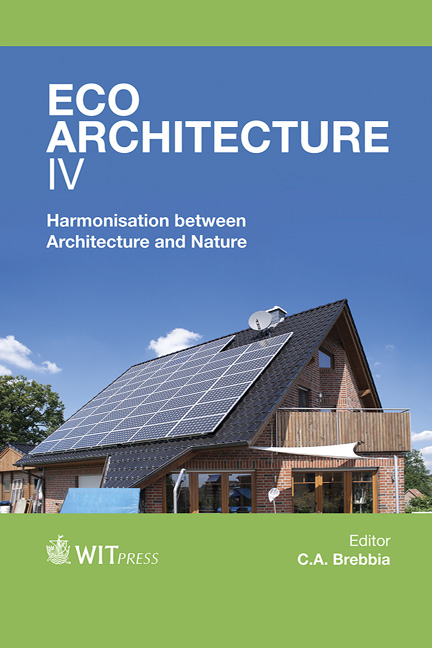Eco-Architecture IV
Harmonisation between Architecture and Nature
Edited By: C.A. Brebbia, Wessex Institute of Technology, UK
Price
$398.00 (free shipping)
ISBN
978-1-84564-614-1
eISBN
978-1-84564-615-8
Pages
464
Transaction Series
WIT Transactions on Ecology and the Environment
Transaction Volume
165
Published
2013
Format
Hardback
Containing the proceedings of the latest in a series of conferences on the emerging topic of eco-architecture, this book presents the newest research in the field.
Eco-architecture requires that buildings be in harmony with nature, including their immediate environs. Locations, siting and orientation, as well as the materials used, should be chosen based on ecological appropriateness. Practitioners make every effort to minimize the use of energy at each stage of a building’s life cycle, including that embodied in the extraction and/or fabrication as well as the transportation of the materials used and their assembly into the building. There is even consideration given to the ease and value of changing use of a building and component recycling when the building’s life is over. Designers may also carefully control the energy required for building maintenance, not to mention lighting, heating and cooling, especially when the energy consumed is related to greenhouse gas emissions. Passive energy systems such as natural ventilation, summer shading and winter solar heat gain also play a role, as do alternative sources of energy for heat and electricity, e.g. solar and wind power.
Papers presented cover topics such as: Design with Nature; Ecological and Cultural Sensitivity; Energy Efficiency; Bioclimatic Design; Vertical Greenery Systems; Ecological Impact of Materials; Building Technologies; Education and Training; Case Studies.









